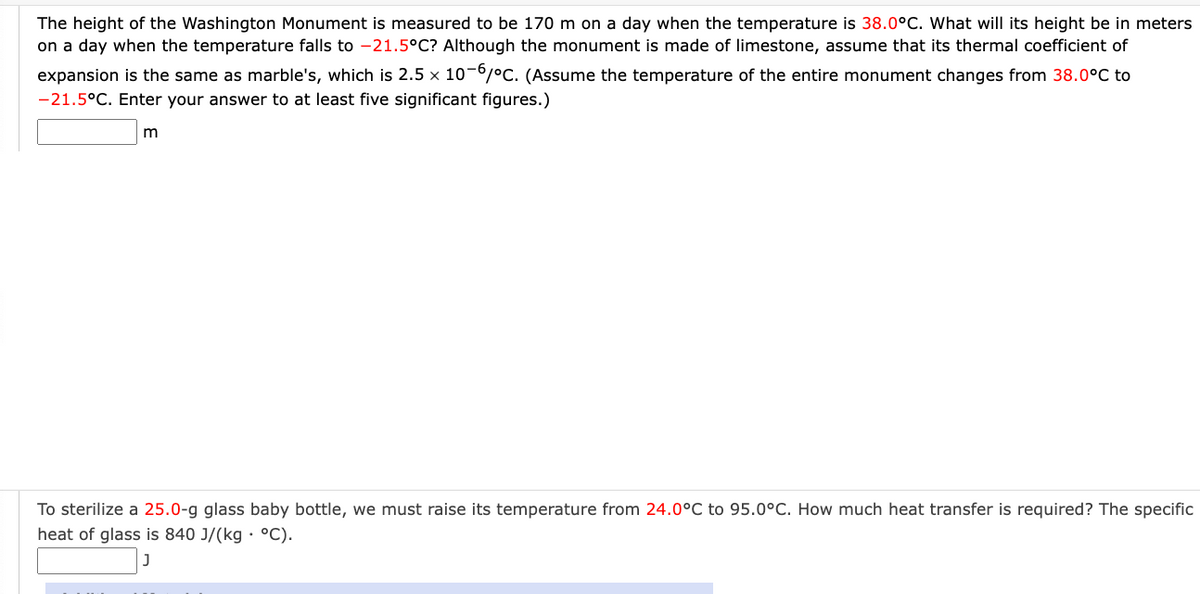The height of the Washington Monument is measured to be 170 m on a day when the temperature is 38.0°C. What will its height be in meters on a day when the temperature falls to -21.5°C? Although the monument is made of limestone, assume that its thermal coefficient of expansion is the same as marble's, which is 2.5 x 10-6/0C. (Assume the temperature of the entire monument changes from 38.0°C to -21.5°C. Enter your answer to at least five significant figures.)
Energy transfer
The flow of energy from one region to another region is referred to as energy transfer. Since energy is quantitative; it must be transferred to a body or a material to work or to heat the system.
Molar Specific Heat
Heat capacity is the amount of heat energy absorbed or released by a chemical substance per the change in temperature of that substance. The change in heat is also called enthalpy. The SI unit of heat capacity is Joules per Kelvin, which is (J K-1)
Thermal Properties of Matter
Thermal energy is described as one of the form of heat energy which flows from one body of higher temperature to the other with the lower temperature when these two bodies are placed in contact to each other. Heat is described as the form of energy which is transferred between the two systems or in between the systems and their surrounding by the virtue of difference in temperature. Calorimetry is that branch of science which helps in measuring the changes which are taking place in the heat energy of a given body.

Step by step
Solved in 2 steps with 1 images









